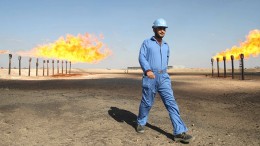Geopolitics, geopolitics and, for dessert, geopolitics
Clàudia Canals (Caixabank Research) | Economic prosperity and the transformation of societies has been indisputably linked to technological revolutions. Today, in the midst of the Fourth Industrial Revolution and an intense geopolitical battle that is likely to lead to a multi-polar world, the major economies must choose their game-play strategy. This is a strategy that will be developed on many fronts, and where we are already seeing a prominent role…








